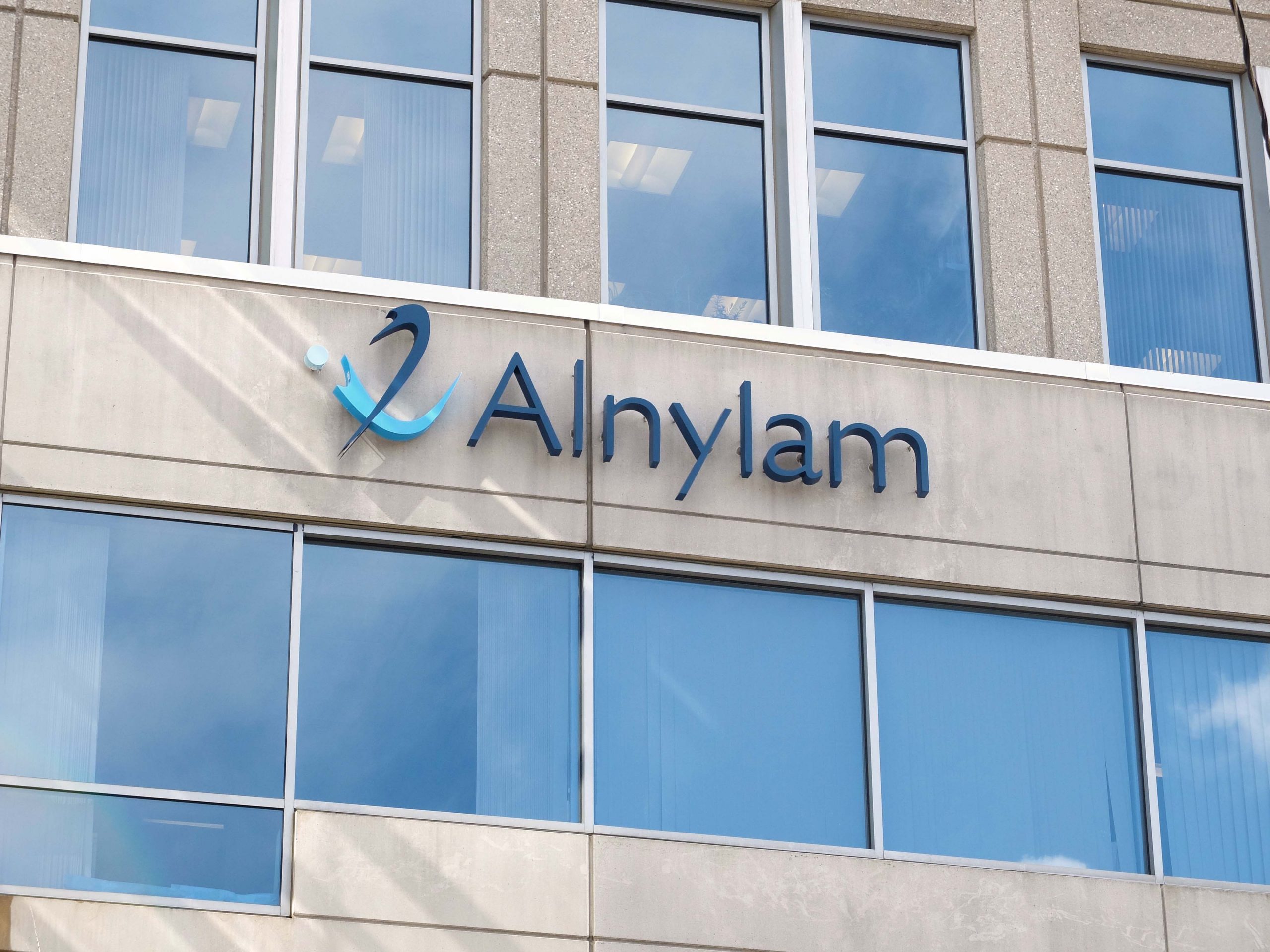Alnylam to file gene-silencing porphyria drug

Alnylam is to file its givosiran with regulators to treat a form of the blood disease porphyria, applying its gene silencing technology to the condition for the first time, following supportive results from a late-stage trial.
Givosiran is based on Alnylam's technology, which "silences" the RNA that codes for the protein that is the root cause of the rare disease.
Results from the 48-patient phase 3 ENVISION trial presented at the European Association for the Study of the Liver congress this weekend showed the drug reduced the chances of attacks by 74%, using a composite measure when compared with placebo in patients with acute hepatic porphyria.
The primary endpoint measured annualised composite attacks in patients relative to placebo during a six-month double-blind period, and givosiran achieved statistically significant positive results for five of nine secondary endpoints.
Givosiran’s safety profile was “encouraging” according to Alnylam given the serious nature of the disease – adverse events were reported in 89.6% of patients treated with givosiran compared with 80.4% of patients on placebo.
Serious adverse events (SAEs) were reported in 20.8% of givosiran patients and 8.7% of placebo patients. Ninety-three of 94 patients, or 99%, enrolled in the open-label extension (OLE) period of the study.
Alnylam says it is to complete a rolling filing with the FDA, and a marketing authorisation application with European regulators in the coming months – although the safety results will give regulators some tough deliberations.
SAEs in givosiran patients consisted of two cases of chronic kidney disease (CKD; 4.2%), and one case (2.1%) each of asthma, device-related infection, gastroenteritis, hypoglycemia, abnormal liver function test, major depression, pain management, and pyrexia.
Three SAEs in givosiran patients were reported as related to study drug: pyrexia, abnormal liver function test, and CKD (one case). The two SAEs of CKD noted above were considered serious due to elective hospitalisation for diagnostic evaluation. There were no deaths in the study.
The most common adverse events nausea (27% on givosiran verses 11% on placebo) and injection site reactions (16.7% versus 0%). One patient on givosiran discontinued treatment due to an increase in alanine aminotransferase (ALT) level greater than eight times upper normal limits, a protocol-defined stopping rule indicating liver damage – although this was resolved after treatment finished.
Manisha Balwani, associate professor of the Department of Genetics and Genomic Sciences and Department of Medicine at the Icahn School of Medicine at Mount Sinai and principal investigator of the ENVISION study, said: “Currently, there are no approved therapies aimed at preventing the painful, often incapacitating attacks and chronic symptoms associated with AHP.
“The results from ENVISION are promising and demonstrate a strong treatment effect for givosiran, with reduction of attacks and improvement in patient-reported measures of overall health status and quality of life. Thus, givosiran represents a novel and targeted treatment approach that has the potential to make a significant impact on the lives of patients who are struggling with the disabling symptoms of this disease.”
Givosiran is an investigational, subcutaneously administered RNAi therapeutic targeting aminolevulinic acid synthase 1 (ALAS1) in development for the treatment of acute hepatic porphyria (AHP).
Monthly administration of givosiran has the potential to significantly lower induced liver ALAS1 levels in a sustained manner and thereby decrease neurotoxic heme intermediates, aminolevulinic acid (ALA) and porphobilinogen (PBG), to near normal levels.
By reducing accumulation of these intermediates, givosiran has the potential to prevent or reduce the occurrence of severe and life-threatening attacks, control chronic symptoms, and decrease the burden of the disease.












